 W
WConstantin Antoniade (1880–1954) was a Romanian jurist, writer, historian, philosopher and diplomat of ethnic Greek heritage.
 W
WVincențiu Babeș was an ethnic Romanian lawyer, teacher, journalist and politician from Hungary, and one of the founding members of the Romanian Academy.
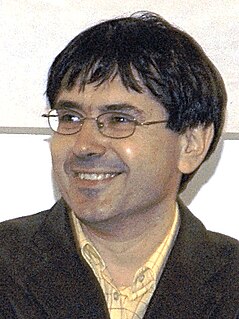 W
WCristian Bădiliță is a theologian, essayist, translator and contemporary Romanian poet.
 W
WŞevqiy Bektöre (1888-1961) was a Dobrujan-born Crimean Tatar leading poet, publisher, educator, academic, and activist for ethnic Crimean Tatar causes.
 W
WDumitru Berciu was a Romanian historian and archaeologist, honorary member of the Romanian Academy.
 W
WDomokos Bölöni is a Romanian Magyar writer and journalist.
 W
WIon Ciocan was a politician and professor from Austro-Hungary. He served as member of the Parliament of Hungary.
 W
WRomulus Cioflec was a writer, journalist and activist from Romania. He was the editor in chief of Românul in Arad and worked for Cuvânt Moldovenesc, a newspaper from Chişinău, where he lived between 1917 and 1926.
 W
WCoroban, Vasile was a writer from Moldova. He was a non-conformist literary historian and critic from Moldavian Soviet Socialist Republic (MSSR), PhD in philology (1958). Beginning in 1954, he was a member of the Writers' Union of SSRM. In 1935, he graduated from the law faculty of the University of Iași. He edited the newspaper "University Life" that had an anti-fascist orientation, and because of that, he was convicted.
 W
WPavel Coruţ is a Romanian writer and former Securitate intelligence officer. He has written, among other things, about his experience as an intelligence and counterintelligence officer in Romania. His most popular books are Quinta spartā and Fulgerul albastru of the Octogonul series.
 W
WIon Horaţiu Crişan (1928–1994) was a Romanian historian and archaeologist. He conducted research in South-Eastern and Central Europe, focusing on Geto-Dacians and Celts.
 W
WAnghel Demetriescu was a Romanian historian, writer and literary critic, who became a member of the Romanian Academy in 1902.
 W
WPaul Everac was a prolific Romanian drama writer who wrote under his birth name, Petre Constantinescu.
 W
WEugen Filotti was a Romanian diplomat, journalist and writer. As a diplomat he worked at the League of Nations in Geneva and then as minister plenipotentiary in Turkey, Greece, Bulgaria and Hungary. As minister plenipotentiary to Budapest he issued transit visas for Jews during the Holocaust. He was secretary general of the Ministry of Foreign Affairs in 1944–1945. As writer he published several translations of literary works.
 W
WFilip Florian is a Romanian writer and journalist.
 W
WIustin Ştefan Frăţiman was a historian and activist from Bessarabia. He was a corresponding member of the Romanian Academy and an activist of the National Moldavian Party. Iustin Frăţiman graduated from Kazan State University and Petersburg University. He was the president of the "Literary and Historical Society B.P. Haşdeu" in Chişinău.
 W
WRaoul Samuel Gunsbourg was a Jewish-Romania-born opera director, impresario, composer and writer. Gunsbourg is best known for being the longest-serving director of the Opéra de Monte-Carlo, where his career spanned almost six decades.
 W
WAlexandru Hâjdeu was a Russian writer of Romanian origin, who lived in Bessarabia. He was the father of Romanian writer and philologist Bogdan Petriceicu Hasdeu. Alexandru Hâjdeu was one of the founding members of the Romanian Academy.
 W
WDr. Hunor Kelemen is a Romanian politician and Hungarian language writer. The current president of the Democratic Alliance of Hungarians in Romania (UDMR), he has been a member of the Romanian Chamber of Deputies since 2000, and was nominated as his party's candidate for the 2009 presidential election, receiving 3.8% of the valid votes. From December 2009 to May 2012 he was Romania's Minister of Culture in the Emil Boc and Mihai Răzvan Ungureanu governments, a role he has reprised between March and October 2014 in the government headed by Victor Ponta.
 W
WMite Kremnitz, born Marie von Bardeleben, was a German writer.
 W
WHorațiu-Valentin Mălăele is a Romanian actor, cartoonist, writer, and theater and film director. In this last capacity his is often associated with the Romanian New Wave.
 W
WNorman Manea, is a Romanian writer and author of short fiction, novels, and essays about the Holocaust, daily life in a communist state, and exile. He lives in the United States, where he is a Professor and writer in residence at Bard College.
 W
WGeorge Meniuc was a writer from Moldova.
 W
WTudor Pamfile was a Romanian writer.
 W
WVasile Pârvan was a Romanian historian and archaeologist.
 W
WIoana Pârvulescu (1960) is a Romanian writer. She was born in Braşov and studied at the University of Bucharest. She graduated in 1983 and went on to complete a PhD in literature in 1999. She teaches modern literature at the same university.
 W
WIrina Petraş is a Romanian writer, literary critic, essayist, translator and editor.
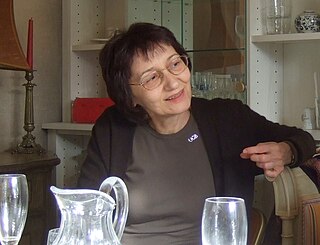 W
WMarta Petreu is the pen name of Rodica Marta Vartic, née Rodica Crisan, a Romanian philosopher, literary critic, essayist and poet. A professor of Philosophy at the Babeş-Bolyai University in Cluj-Napoca, she has published eight books of essays and seven of poetry, and is the editor of the monthly magazine Apostrof. Petreu is also noted as a historian of fascism, which she notably dealt with in her book about the controversial stances of philosopher Emil Cioran.
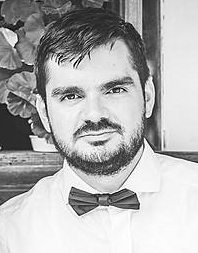 W
WAndrei Polgar is a Romanian author and YouTube personality in the realm of economics. His YouTube channel gained mainstream recognition and is frequently mentioned by analysts on MSN, SeekingAlpha, StockTwits, Entrepreneur (magazine), Forbes and other platforms.
 W
WDumitru Radu Popa is a Romanian-born writer, essayist, translator and literary critic. In 1985, he defected to the US, asking for political asylum.
 W
WDimitrie Prelipcean was Romanian writer, whose works trace the history of his native Bukovina in the wake of World War II and the early years of the Communist regime.
 W
WAurelian Silvestru is a writer and activist from Moldova. He is the founder and the head of the Prometeu-Prim Lyceum, a leader of Democratic Forum of Romanians in Moldova, and an editorialist of Vocea Basarabiei.
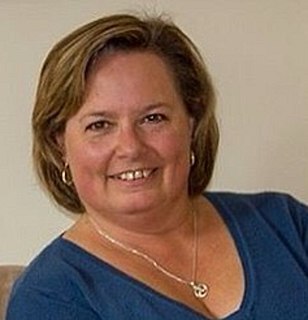 W
WPrincess Sophie of Romania is the fourth daughter of King Michael I and Queen Anne of Romania.
 W
WMihai Șora is a Romanian philosopher and essayist.
 W
WVictor Spinei is Emeritus Professor of history and archaeology at the Alexandru Ioan Cuza University, member and vice president of the Romanian Academy. He is a specialist on the history of Romania and the Romanian people in the Early and High Middle Ages, the history of migratory peoples in Eastern and Southeastern Europe during this period, and the production and circulation of cult objects in Eastern and Southeastern Europe during the Middle Ages.
 W
WDumitru Stăniloae was a Romanian Orthodox Christian priest, theologian and professor. He worked for over 45 years on a comprehensive Romanian translation of the Greek Philokalia, a collection of writings on prayer by the Church Fathers, together with the hieromonk, Arsenie Boca, who brought manuscripts from Mount Athos. His book, The Dogmatic Orthodox Theology (1978), made him one of the best-known Christian theologians of the second half of the 20th century. He also produced commentaries on earlier Christian thinkers, such as St Gregory of Nyssa, Saint Maximus the Confessor, and St Athanasius of Alexandria.
 W
WChristian Tămaş is a Romanian writer, translator, essayist, arts and humanities researcher.
 W
WGrigore George Tocilescu was a Romanian historian, archaeologist, epigrapher and folkorist, member of Romanian Academy.
 W
WVasile Vasilache was a writer from Moldova.
 W
WAlexandru Vlahuță was a Romanian writer. His best known work is România pitorească, an overview of Romania's landscape in the form of a travelogue. He was also the main editor of Sămănătorul magazine, alongside George Coșbuc.
 W
WGheorghe Vodă was a writer, screenwriter and film director from Moldova.
 W
WSydir Vorobkevych (1836–1903) was a Ukrainian composer, writer, Eastern Orthodox priest, teacher, artist, and newspaper editor of Bukovina. He used following pen-names: Danylo Mlaka, Demko Makoviychuk, Morozenko, Semen Khrin, Isydor Vorobkevych, S.Volokh, and others.
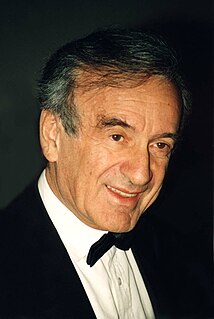 W
WElie Wiesel was a Romanian-born American writer, professor, political activist, Nobel laureate, and Holocaust survivor. He authored 57 books, written mostly in French and English, including Night, a work based on his experiences as a Jewish prisoner in the Auschwitz and Buchenwald concentration camps.
 W
WRichard Wurmbrand, also known as Nicolai Ionescu was a Romanian evangelical Christian minister of Jewish descent. In 1948, having become a Christian ten years before, he publicly said Communism and Christianity were incompatible. As a result, he experienced imprisonment and torture by the then Communist regime of Romania, for his beliefs. After serving a total of fourteen years, he was ransomed for $10,000. His colleagues in Romania urged him to leave the country and work for religious freedom from a location less personally dangerous. After spending time in Norway and England, he and his wife Sabina, who had also been imprisoned, emigrated to America and dedicated the rest of their lives to publicizing and helping Christians who are persecuted for their beliefs. He wrote more than 18 books, the most widely known being Tortured for Christ. Variations of his works have been translated into more than 65 languages. He founded the international organization Voice of the Martyrs, which continues to aid Christians around the world who are persecuted for their faith.